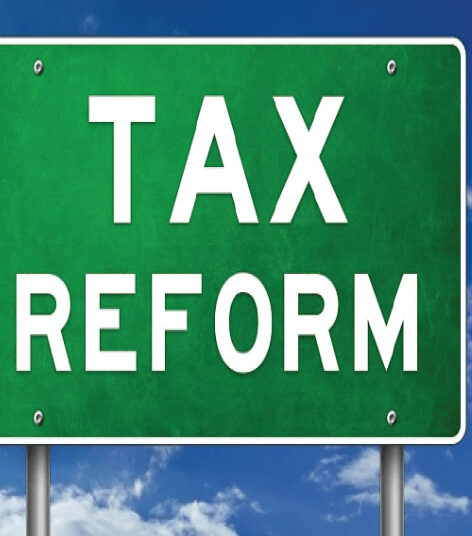Experts have described the ‘Nigeria Tax Administration (NTA) Act 2025,’ as a potential game-changer for Micro, Small and Medium Enterprises (MSMEs), offering broader tax reliefs and fresh incentives designed to ease operational pressures and encourage formalisation, tax filing and documentation for small and medium enterprises (SMEs).
According to a partner and tax expert at The New Practice (TNP), Sam Esuga, the new framework strikes a balance between expanding government revenue and supporting small business growth, a critical step toward building a more inclusive and efficient tax system. He explained that the Act significantly increases the financial threshold for determining small companies.
Esuga clarifies SMEs, agribusiness sector and small holder farmers on tax exemption while stating that the fintechs, telecommunications and manufacturing sector will shoulder higher tax obligation in the new tax reforms.
“Under the NTA, businesses with an annual turnover of up to N50 million, up from the previous N25 million limit, and fixed assets not exceeding N250 million are now exempted from Company Income Tax (CIT), Capital Gains Tax (CGT), and the Development Levy,” he said.
This expansion, he noted, will enable more MSMEs to reinvest their earnings into operations, job creation, and market expansion. In the agricultural sector, the Act exempts tractors, ploughs, fertilisers, seeds, veterinary medicine, small holder farmers and animal feed from Value Added Tax (VAT). Esuga said, this move will reduce input costs for small holder farmers and agribusinesses, ultimately leading to more affordable food prices for consumers.
He added that, registered businesses can now claim input VAT on taxable goods, services, and fixed assets used in production. “Manufacturers can offset VAT paid on machinery or raw materials against their output VAT, a major liquidity benefit that can help them grow sustainably,” he noted, emphasising that, such claims must be made within five years.
For Nigeria’s informal economy, the NTA 2025 introduces a progressive personal income tax structure designed to reduce the burden on low-income earners. “The first N800,000 of annual income is tax-free, while subsequent income bands are taxed at increasing rates, up to 25 per cent for those earning above N50 million. This ensures fairness by letting lower-income earners keep more of their earnings,” he stressed.
He added that, essential goods and services, such as basic food items, educational books, and school tuition at the nursery, primary, and secondary levels, are now zero-rated for VAT. Shared public transport services have also been exempted, a move he said, could reduce daily living costs for low-income households.
To deepen compliance, he said, the Act requires every taxable person to register with the relevant authority and obtain a “Tax Identification Number (TIN). Even informal traders, artisans, and gig workers are now expected to register and file taxes. Where income records are incomplete, authorities may use a presumptive assessment to determine a fair tax rate.”
Esuga highlighted that, the new law also introduces a “rent relief provision”, allowing taxpayers to deduct up to 20 per cent of annual rent, capped at N500,000, when calculating taxable income. This is a modest yet welcome relief, particularly for urban dwellers and small business owners operating from rented premises, he said.
He further noted that compensation of up to N50 million for personal injury, wrongful job loss, or defamation is now tax-exempt, aligning with the government’s goal of equitable taxation. Esuga believes that the real beneficiaries of the NTA 2025 will be MSMEs and the agricultural sector even as New agribusinesses will enjoy a five-year tax holiday, encouraging investment in food production and value addition,” he explained.
Meanwhile, the Nigerian Association of Small and Medium Enterprises (NASMEs) described the 2025 Tax Act as a signal of federal government’s commitment to inclusive economic growth and enterprise resilience.
President of NASMEs, Dr. Abdulrashid Yerima described the tax reforms as a welcome development with cautious optimism, particularly for Micro, Small and Medium Enterprises (MSMEs) across Nigeria and West Africa. He hailed the exemption of low income earners from tax alongside the upward revision of the turnover threshold for small businesses from N25 million to N100 million.
According to him, “this marks a major policy shift towards a more equitable tax system. This aligns with global best practices in progressive taxation and demonstrates a conscious effort to support income redistribution and stimulate enterprise growth.”
He said, the adjustment was timely, given the prevailing challenges including high exchange rates and commercial bank lending rates that exceeded 37 per cent. This makes it difficult for small businesses to survive, he added. Yerima also lauded the removal of the previous 0.5 per cent turnover tax on loss-making businesses, saying it was a positive and corrective move.
The Small and Medium Enterprises Development Agency of Nigeria (SMEDAN) supported the new tax reforms proposed under the Tinubu administration, stating, they will benefit Micro, Small and Medium Enterprises (MSMEs) by reducing their tax burden.
SMEDAN director-general, Charles Odii highlighted ways the reforms will assist MSMEs, including increased tax exemption threshold as businesses with an annual turnover of less than N100 million will be exempted from key tax obligations.
This raises the exemption significantly, which will free up capital for smaller businesses to reinvest in growth and operations, he said. He highlighted that, the reforms will address the problem of multiple taxation and eliminate nuisance levies, which have historically increased operational costs for small businesses.
He noted that,by consolidating taxes and simplifying the process, the reforms will remove regulatory hurdles that have often stifled MSME growth.
Stressing accountability in tax implementation, he said, the new policies aim to increase accountability among relevant authorities, which should reduce the potential for arbitrary or illegal tax collection.
Also speaking, national president of Association of Small Business Owners of Nigeria (ASBON) Dr. Femi Egbesola expressed concern over the multiple and informal taxation that disproportionately affects Small and Medium Enterprises (SMEs).
He stated that, as the nex tax policy takes off next year, SMEs should be protected from paying illegal taxes at the local government levels. He alluded that, with the recent tax reforms, council taxes should be eliminated for SMEs operating at various LCDAs urging that the move will erode the future benefits of the new tax reforms act.




